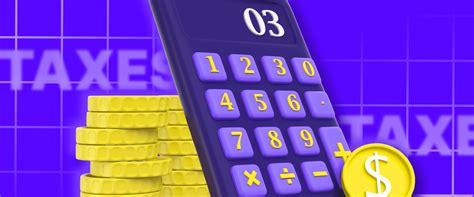minimizing cryptographic taxes: proven strategies for investors
The cryptocurrency market has recorded a rapid growth in recent years, attracting investors from around the world. However, as this increase, a new set of tax implications appears, which can be complex and overwhelming for even experienced cryptographic investors. To avoid expensive penalties and fines, it is necessary to understand how to minimize cryptographic taxes. In this article, we will discuss proven strategies for investors to reduce tax liability during trading or investing in cryptocurrencies.
Understand your cryptocurrency type
Before immersing yourself in tax minimization strategies, it is crucial to understand the type of cryptocurrency you are dealing with. There are several types of cryptocurrencies, each with their own set of tax rules and regulations. Some popular types include:
* Security tokens : These are digital tokens that represent property in a company or project.
* tokenized assets : These are assets such as real estate, art or securities that have been toxhenized and transferred to the cryptographic market.
* cryptographic tokens : These are digital tokens that use cryptographic techniques for safety.
expenses subject to deductible
To minimize the tax liability, it is key to subtracting expenses related to cryptocurrency investments. Here are some expenses that you can deduct, you can apply:
* Trade fees : You can deduct charges charged by cryptocurrency exchanges and trading platforms.
* Mining equipment : If you bought mining equipment for personal use, you can deduct costs as a business cost.
* Wallet and software : You can deduct the costs of portfolios and software used to manage cryptocurrency investments.
Tax collection
Tax collection is a strategy that includes the sale of securities to balance profits from other investments. This can help minimize the tax liability of capital profits. Here are some ways to implement a tax collection:
* Selling coins at a low price : Sell the coins at a low price to realize the profit, and then sell the same coin again at a higher price to balance the loss.
* Selling stocks with long -term losses : If you sold shares in a specific sector or industry for a long time, consider selling them again at a lower price to collect tax losses.
tax -free accounts
Some tax -free accounts can help minimize cryptographic taxes. Here are some options:
* Cryptocurrency IRA : Code for cryptocurrency IRA (individual retirement account) may be deducted from tax.
* cryptocurrency 401 (K) : Some pension plans sponsored by employers allow employees to contribute to a separate cryptocurrency account that may be tax -free.
Consult a tax professional

Minimization of cryptographic taxes requires specialist knowledge and knowledge of tax regulations. To avoid expensive penalties and fines, consult a tax professional who is familiar with the cryptographic market and its regulations. They can help navigate complex tax rules and identify potential tax losses to minimize your liability.
To sum up, minimizing cryptographic taxes requires understanding of the type of cryptocurrency, subtracting expenses related to investments, implementing a tax collection strategy and consideration of tax -free accounts. By following these proven strategies, investors can reduce their tax liability and protect their financial interests.
 VN
VN